In defense of competition
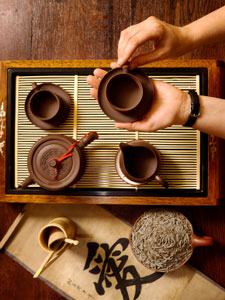
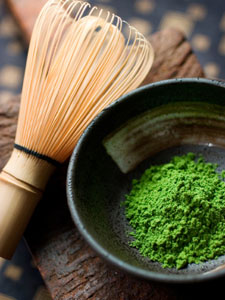
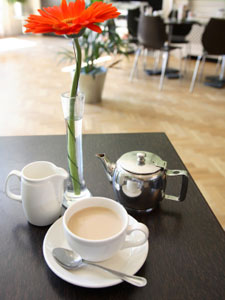
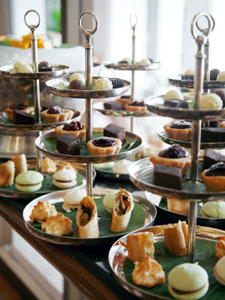
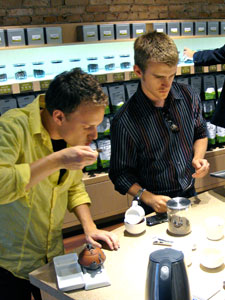
Too many in the Specialty Tea industry are fighting a gentleman's battle, and losing as a result. Many tea shops are doing a rather poor job of appealing to all existing tea lovers, much less converting new ones. As I look at the market on a national scale, I see the need for more competition. The result will be far fewer casualties among independent shop owners than most expect, and a far healthier and faster growing industry in the long run.
The Specialty Tea Industry is chasing 11% of the US population. According to a 2009 study by Mintel, 75% of American households buy packaged tea products, and 15% of those buy loose leaf tea. According to those numbers, just over 11% of US households are buying loose leaf tea. Chasing the 11% is a painful and expensive process. Traditional advertising is far too expensive if only 11% of your audience is predisposed to your product. The prospects for opening a retail store are similarly bleak if only 11% of the foot traffic has any real interest.
Converting the other 89% to loose tea lovers is going to require giving consumers better access to high quality tea. We need to cultivate curiosity and inspire passion. One of the best ways to create buzz and increase the pace of customer conversion to tea is through MORE competition in Specialty Tea.
Before I explain my theory, allow me to back up for a moment. Most in our industry assume that each town or trade area can only support one good Specialty Tea Shop. I've heard as much said by the owners of small independent shops and large chains alike. To be honest, I find this theory preposterous. At a minimum it's short sighted.
"Tea" is an incredibly broad category, and a "good tea shop" could be anything from Old English with a focus on black teas to an Asian shop with a specialty on green or oolong tea. A more universal tea retailer that carries 300 varieties of loose teas and herbs must is, by definition, NOT an English or Asian shop. Whether they admit it or not... whether they're doing it intentionally or by accident, every tea shop appeals to a certain crowd more than others. You simply cannot be all things to all people. It's impossible to cater to pu-erh connoisseurs and fruit tea novices with equal effectiveness.
The market is NOT a zero sum game. This is especially true in tea, where 75% of American Households buy tea at some level. I'm pretty confident that I could find a tea or tisane that would make 95% of consumers say "I like tea". The prospect of clawing out my share of a tiny market does not appeal to me. What excites me is the potential of introducing quality tea to the majority of consumers who have never experienced it. I want to grow the market!
Back to my point: The introduction of competing brands and retailers does not saturate the market - it grows the market. The American consumer loves to consume! Even in the current economy, consumption is far less about physical need and far more about recreation, entertainment and emotional fulfillment. Consumption is about acquisition and discovery.
Open one new tea shop in a town and the curious consumers will stop by for a visit. The ambiance, decoration, product selection, pricing, and service will appeal to maybe a third of the audience. Half of those will fall in love with the product and become loyal customers. The rest will remain casual consumers. After a time the "newness" wares off, and the shop owner is left searching for a way to re-energize the business.
Open a second shop in town and the cycle begins anew. The consumers are curious. Sure, the first shop will lose business for a time as their loyal customers test out the new offering, but assuming we're not all a bunch of copy-cats, the new store will appeal to a different third of the audience. Most importantly, more people will be drinking and talking about good tea. As more people drink and talk about good tea, the appeal of good tea rises. Tea moves from niche to mainstream.
When wine was a niche luxury, it was considered rather boring and stuffy by most consumers. As wine became more mainstream, a working knowledge of good wine became a social necessity. Wine quickly moved from a niche product with a small core following to a social phenomenon with a great deal of romantic cache.
Coffee is possibly the best example. In 1991 most Americans drank coffee; primarily bad coffee. There were 1,650 coffee shops in the US at that time. By 2006 there were more than 25,000. In some cases the demand grew faster than the distribution, but in the vast majority of markets, the first specialty coffee shops were met with skepticism. Everyone assumed that Starbucks would never make it in THEIR town. The availability of options bred curiosity, and eventually just about everyone who had the palate to appreciate the taste of coffee had a shop or brand that appealed to them.
If Specialty Tea is to grow effectively, it must be able to support multiple tea businesses in a trade area. Specialization among these businesses will allow each to focus on what they do best, and thereby do a BETTER job serving the customer.
Consider China Town. Which China Town doesn't matter, but let's take San Francisco. The aggregation of excellent tea shops is practically an international draw, and tea lovers from around the world visit San Francisco's China Town BECAUSE of the variety of options offered.
Like the rest of my theories, Adagio is giving me the opportunity to test and prove this one. Towards the end of this month Adagio will be opening our second "Tea Experience" retail store at Old Orchard Mall in Skokie, IL. Teavana happens to have a store in this mall. I wasn't targeting Teavana specifically. They just happen to have shops in practically every high end mall in the country. I wanted to test a mall location, and this meant competing with Teavana.
The truth is that I am hoping our entree will attract more tea drinkers to the mall and IMPROVE Teavana's sales. This is rather important to Adagio's growth. If we hurt their sales too much, we feed into the fear that the tea market is too small to support competing shops. Mall developers would shy away from us, and a huge percentage of the best retail locations in the country will be off limits.
There is no question that, at some point, multiple tea shops in a trade area will be just as common as multiple coffee shops, shoe stores or grocery stores. The question is when. My guess... later this month.
Adagio Teas
Twitter: @AdagioRetail
